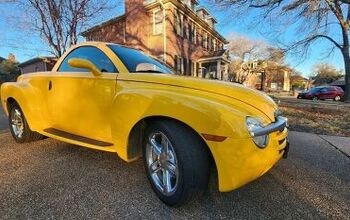KBB Resale Values: Japanese Lead, Americans Gaining
Kelley Blue Book has released its annual resale value data, and according to the WSJ, Toyota, Honda and BMW remain the top brands in five-year residual value. Still, Toyota’s average residual value dropped from 42.7 percent to 38.8 percent, while Honda fell from 44.5 percent to 38 percent. Those drops mirror an industry-wide decline in residual values, which had hovered around 35 percent for some time, but have fallen to about 32.6 percent for 2010 models. But American brands have bucked that trend:
KBB estimates Ford’s 2010 models will keep 32.4% of their value after five years. That’s an improvement—for 2009, KBB put the residual value of Ford’s models at 31.7%. Likewise, GM’s 2010 five-year residual value is 31.3%, up from 29.5% a year earlier. Chrysler’s figures are 29.5% for 2010 models, compared with 29% for 2009 models.
KBB’s top ten models for five-year residual value after the jump.
- MINI Cooper Clubman
- MINI Cooper
- Honda CR-V
- Toyota RAV4
- *Toyota Tacoma
- *Toyota Prius
- *Chevrolet Camaro SS
- BMW M3
- Chevrolet Corvette
- Audi A5
* denotes tie
More by Edward Niedermeyer































Comments
Join the conversation
I am not sure that there is a bigger factor in theoretical vs. actual resale than gasoline prices.
Ran the numbers today at work and using NADA, Manhiem and Galves the variable was a couple of hundred dollars amongst the Toyota Camry, Honda Accord and Ford Fusion. Kelly's percentages are correct, the thing that I factored in that equals them out is the Fusion always has a rebate larger than the other two. As of today the fusion has $1,500.00 on the hood. The Camry as best I can discern has $500.00 and I would guess the Accord the same. When you reduce the purchase price of all three by the cash they are equal withing a few dollars one way or another based on condition. What is not told is that with Honda's continuence of leasing that if you buy one of their cars and trade it within 2 years you'll never get book for it on trade because I have seen many 2 year old Accords of various trim levels sit with untouched door handles on used car lots because you can lease a new one for the same monthly's. Toyotas, not so much but still an issue. I'm not saying they don't sell, they just sell eventually.
I often help relatives and friends buy used cars. I am more interested in the "Bottom 10", used cars with an outstanding price to value ratio, good cars that are shunned by the public for no really good reason reducing their resale value.
What the average consumer must keep in mind is that the true cost of depreciation is measured in dollars, not percentages. For example, while a $40,000 vehicle retaining 40% of its value sounds impressive, a $33,000 vehicle retaining "only" 32% actually costs you less in depreciation. Another thing to keep in mind is that future values are speculative and subject to change, whereas a higher up-front cost is guaranteed to cost you more in principal, interest and taxes. That big BMW or Toyota price premium should not be seen as investment... it should be seen as an added expense on which you might get a partial refund.